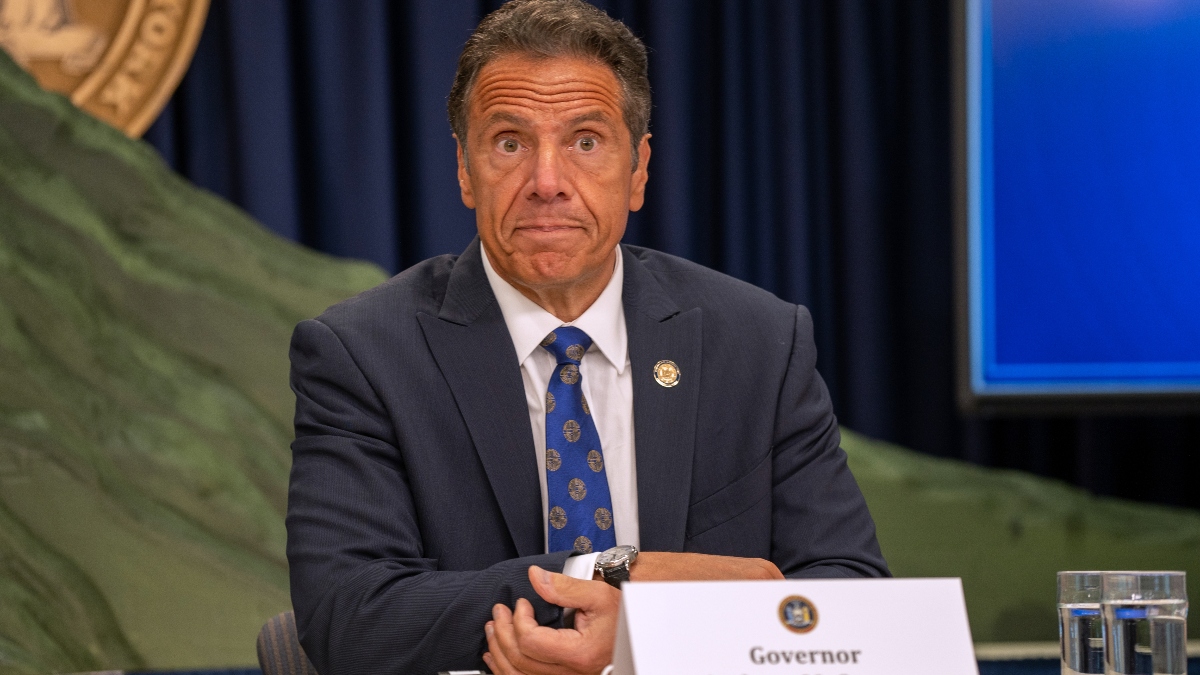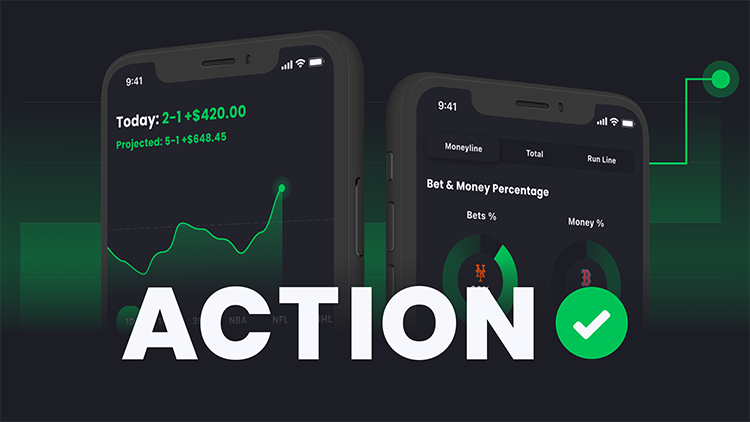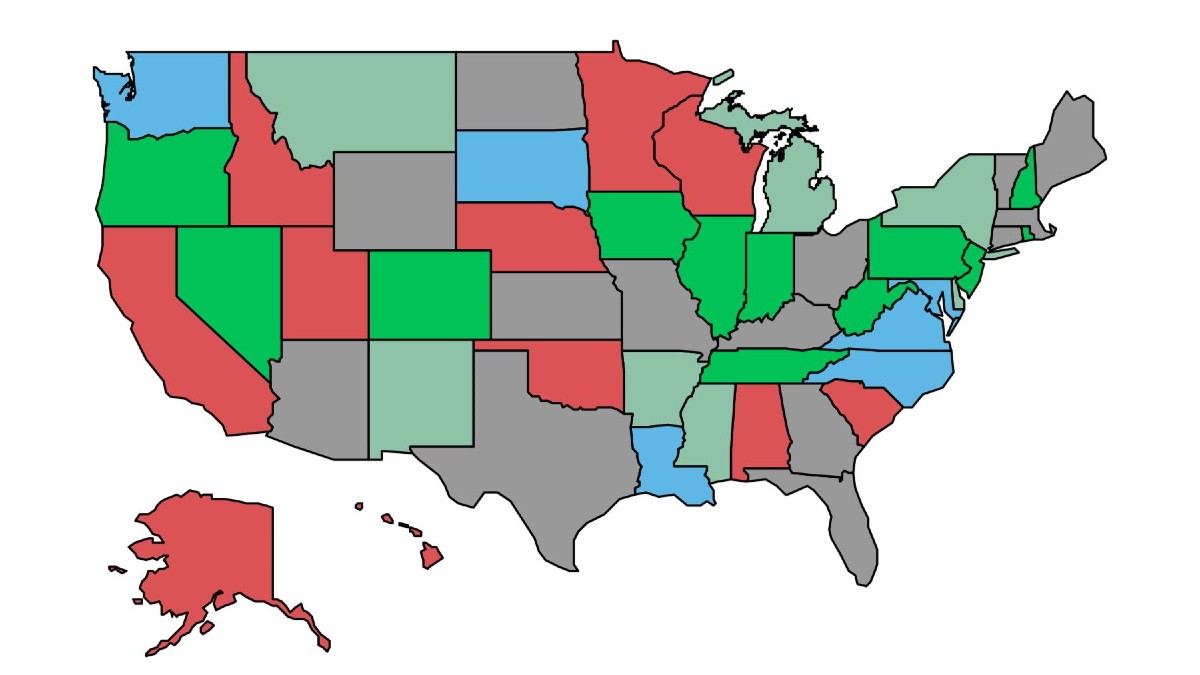
David Dee Delgado/Getty Images)
New York lawmakers introduced the state’s first two 2021 sports betting bills Thursday, the initial legislative step toward statewide mobile wagering and a sharp contrast to Gov. Andrew’s single-operator plan announced days earlier.
The identical proposals from Assemblymember J. Gary Pretlow and Sen. Joseph Addabbo, the leading mobile sports betting advocates in their respective chambers, would allow the state’s commercial casinos and Native American gaming tribes to partner with two online sportsbook partners apiece, opening the door for up to 14 legal operators in New York. It’s a stark juxtaposition to Cuomo’s plans announced Wednesday, which would permit only one statewide operator.
The battle of contrasting plans between Cuomo and his fellow Democrats in the legislature will shape the future of what could be the nation’s single largest sports betting market.
Bill Details
Lawmakers’ plans would create a competitive, multi-operator model favored by sportsbooks and the gaming industry at large. Each of the state’s four upstate commercial casinos, as well as the Mohawk, Seneca and Oneida and tribes, would be able to partner with two sportsbook providers.
Several sportsbooks such as BetRivers (Rivers Casino & Resort), FanDuel (Tioga Downs) and DraftKings (del Lago Resort and Casino) already have retail sportsbooks in place and deals for online options if and when they can launch. Additionally, bettors would be able to register for mobile sportsbooks and place in-person bets through partnered kiosks at off-track betting facilities.
Professional sports venues that can seat at least 15,000 spectators would also be able to offer such kiosks, opening the potential for de facto in-arena sportsbooks at iconic venues such as Madison Square Garden and Yankee Stadium. New York would be the third jurisdiction to approve a legal in-stadium sportsbook after Washington D.C. and Illinois.
Eligible bettors could register, deposit and wager at these in-person facilities or through a mobile device as long as they are physically within state lines.
The proposed one-time, $12 million licensing fee would be the highest required by any state so far, but would seem unlikely to dissuade operator participation in what would be the most lucrative sports betting market in the country. The proposed 12 percent tax on gross gaming revenues after deductions is around industry averages and would still offer a financial incentive for full market participation.
Sportsbooks would be required to remit a 0.2 percent royalty fee to sports leagues, a significant fee for what is already a low-margin industry. Operators would also have to negotiate “commercially reasonable” terms to compensate leagues for official league data for all live or in-play bets.
Bettors would not be able to wager on in-state college competitions, including popular basketball programs such as Syracuse or St. Johns. The law would also ban wagers on collegiate events played in the state, such as the annual Big East Men’s Basketball Tournament or Pinstripe Bowl.
Next Steps
The initial bills now go up against the governor’s drastically different mobile sports betting plans.
Cuomo is expected to address mobile sports betting at his State of the State address next Monday. The speech, as well as his budget proposal which is expected to follow shortly thereafter, will help outline key details around Cuomo’s plan.
At a press conference Wednesday, Cuomo said he wanted a lone operator to conduct sports betting under the purview of the state’s joint lottery and racing commission. A press release indicated only commercial casinos with existing sports betting partnerships could bid on the license.
Cuomo’s argument that the lottery-run, sole-source provider would generate 10 times the revenue as a competitive model has been denied and opposed by the sports betting industry at large. Competitive model advocates have pointed to the success of other multi-operator states such as New Jersey, the single largest market by handle, Pennsylvania, Indiana, Illinois and Colorado.
Critically, a multi-operator model allows legal vendors to capture a larger share of the massive black market, something a lone licensed sportsbook cannot try to compete with.
Cuomo’s position leaves little middle ground. It’s too early to tell if the governor or legislators’ vision will pass into law – or if the stalemate thwarts legal online wagering once again.
In the meantime, elected officials and stakeholders are now awaiting what could be a long back-and-forth between the influential governor and top lawmakers from his own party.

